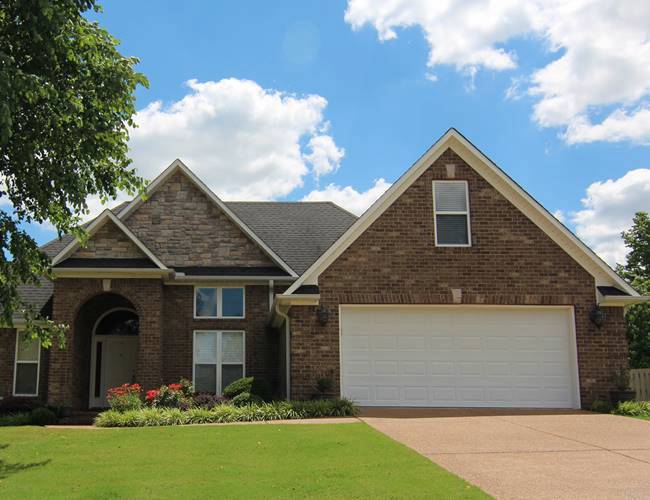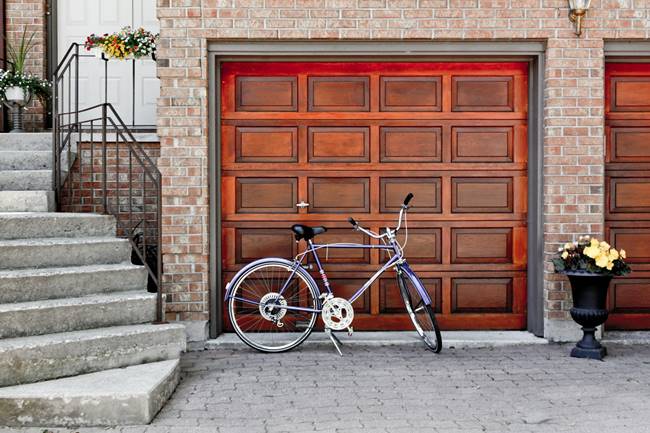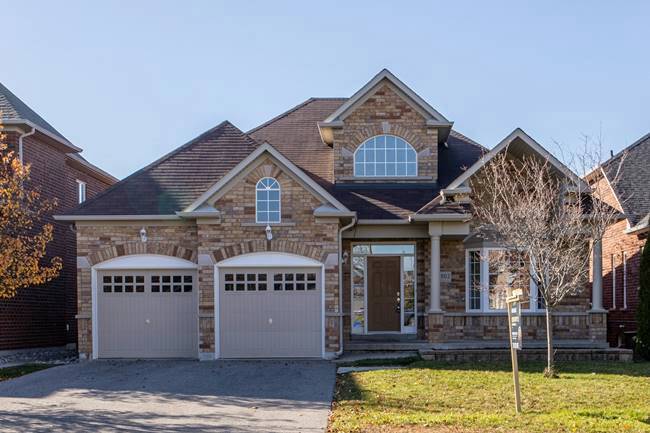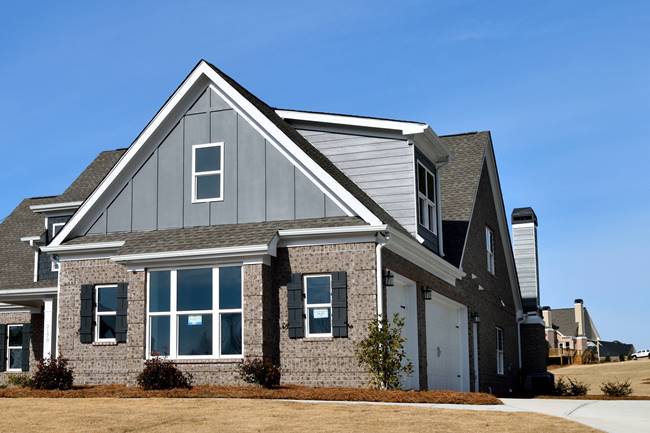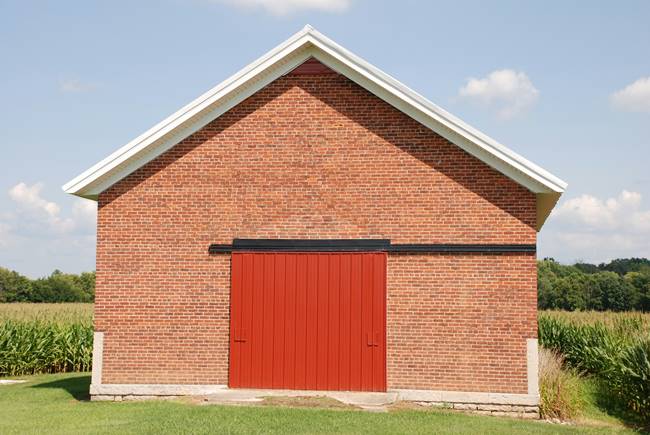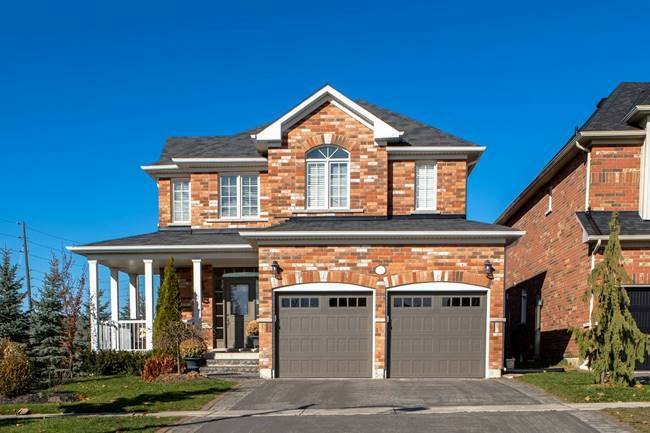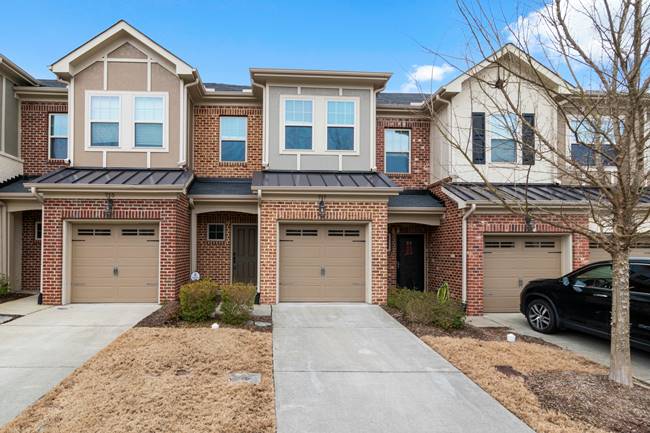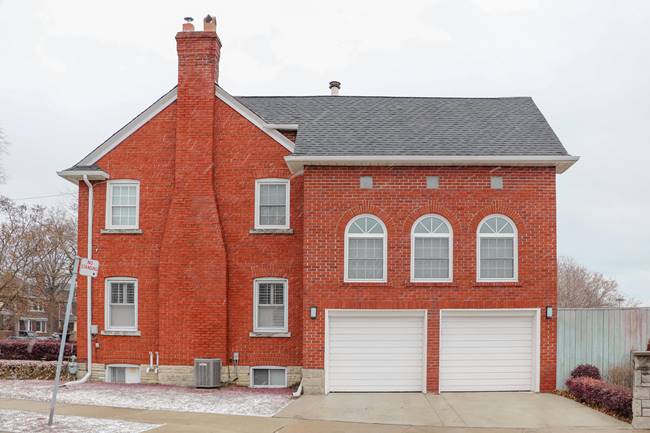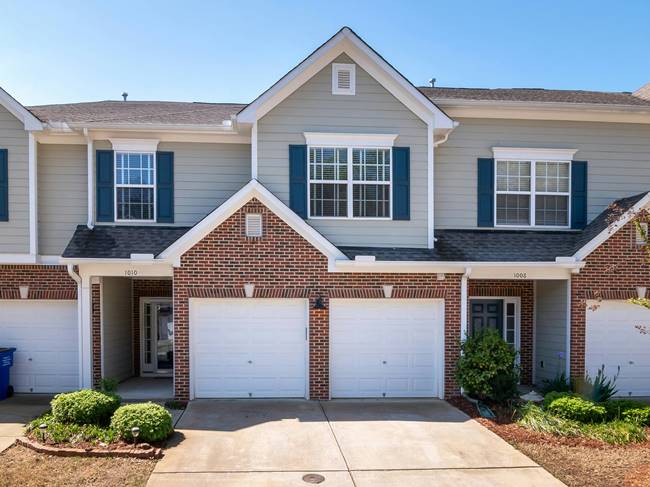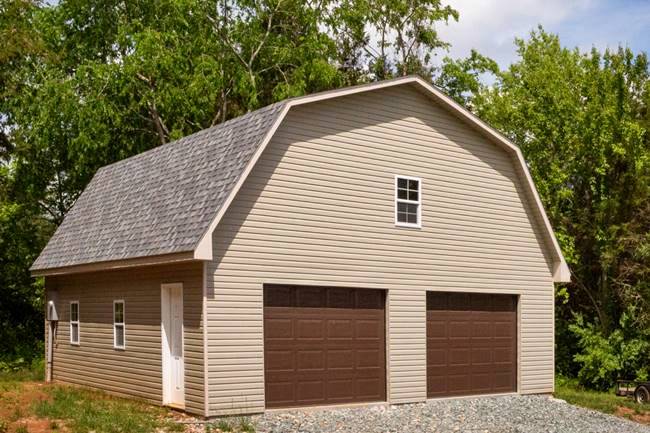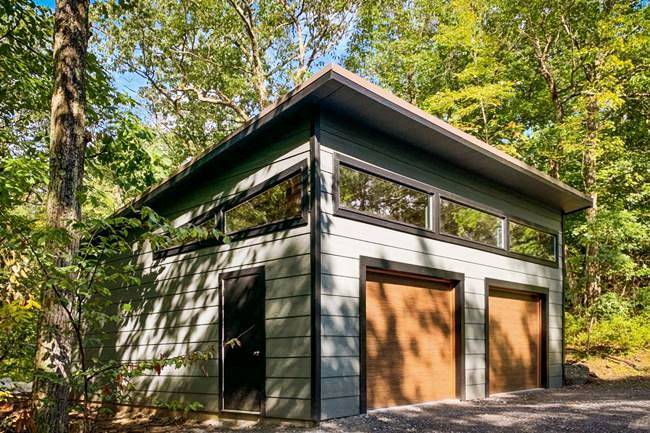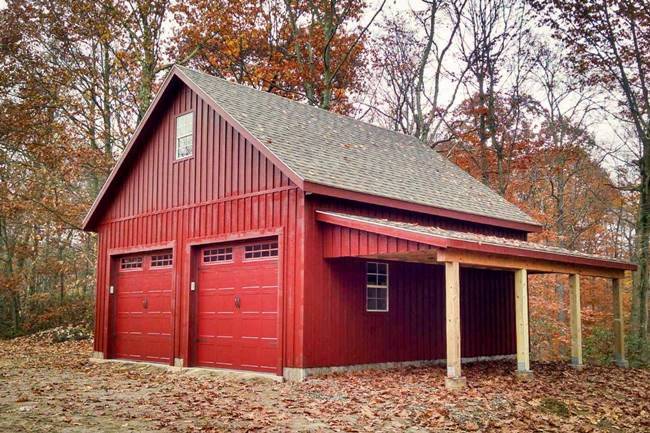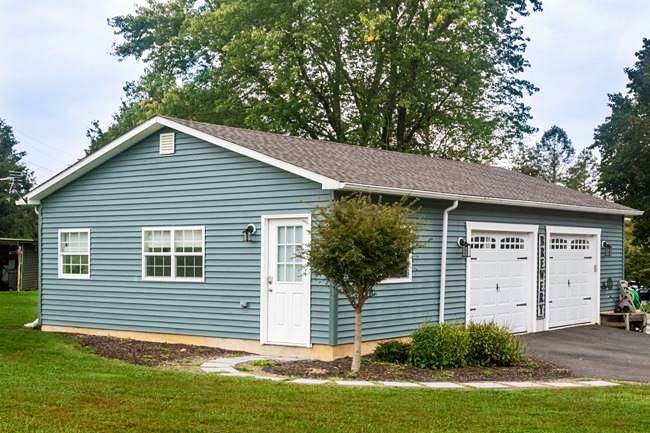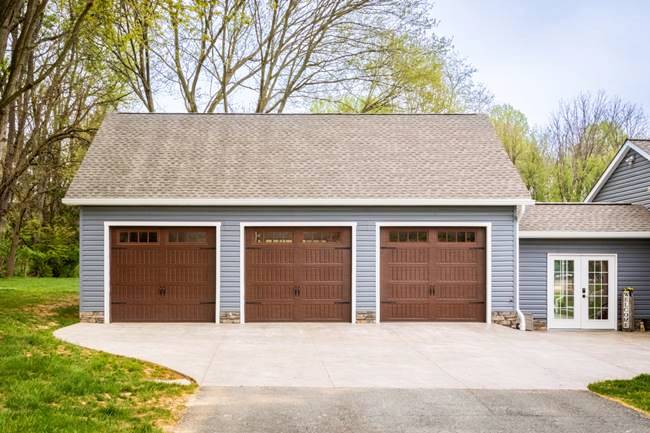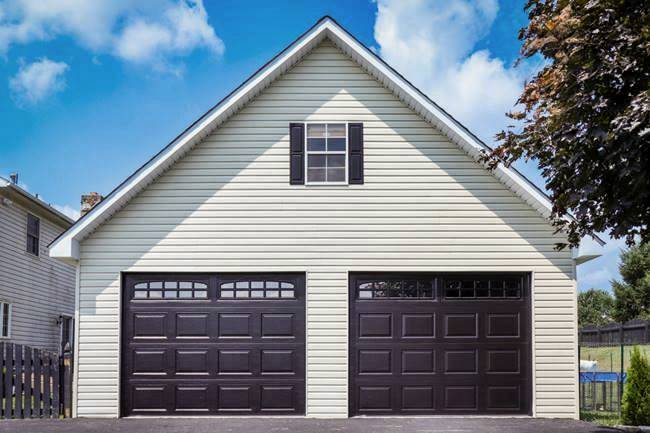Brick Built vs. Prefabricated Garages: How Do They Measure Up?
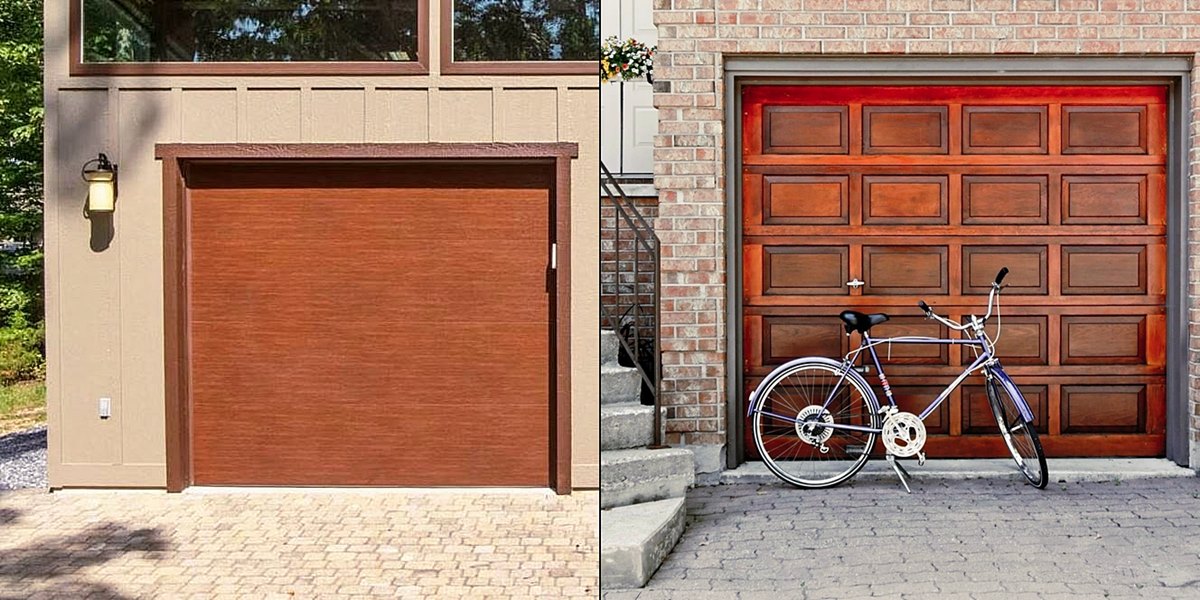
If you plan to build a new garage for your home and are still determining whether prefabricated or brick-built construction is the best choice, today's blog post is just what you have been looking for. In it, we discuss the pros and cons of both types, so by the time you finish reading, you should know which one is right for you. If this is not the case and you would appreciate our professional opinion (and perhaps a competitive quotation for a new garage door installation in Parker or Aurora, too!), please don't hesitate to contact us.
Brick-Built Garages
As far as brick-built garages are concerned, there are several advantages you stand to enjoy if you plump for this type of construction.
Pros of Brick-Built Garages
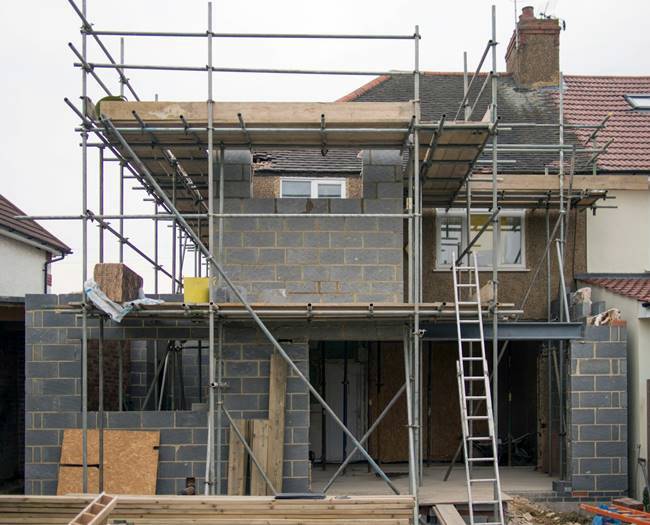
- Appearance — Brick-built garages are, in most people's opinions, far more attractive than their prefabricated counterparts. Brick offers a classic, timeless look that can enhance the overall appearance of your property. Brick-built garages can be customized with different brick colors, textures, and patterns to match your home's architectural style. Furthermore, you will have the freedom to use bricks and roofing materials that match those used in the construction of your home should you choose this option.
- Customization Options — Brick offers a wide range of customization options, allowing you to create a garage that suits your specific needs and preferences. You can choose from different brick colors, textures, and patterns to achieve the desired look.
- Durability — Brick is a highly durable material that can withstand harsh weather conditions, such as heavy rain, wind, and snow. A brick-built garage is less prone to damage from the elements than other materials like wood or metal.
- Energy Efficiency — Brick has natural insulating properties. As such, a brick exterior can help to regulate the temperature inside the garage, reducing heating and cooling costs over time. Assuming you also invest in a well-insulated garage door installation, your new, brick-built garage will be easier to heat in the summer and keep cool in the winter than a prefabricated one.
- Fire Resistance — Brick is a non-combustible material, making it a safer option compared to wood or vinyl siding in the event of a fire. This can provide peace of mind for homeowners concerned about fire safety.
- Flexible Design — If you are having a new garage built from scratch, using quality bricks and other materials, you can make it as big or as small as you like. You will also be able to choose an unusual shape if you desire.
- Low-Maintenance — Brick requires minimal maintenance compared to other materials. It does not need to be painted or stained regularly and is resistant to rot, decay, and insect damage.
- Sound Insulation — Brick is an excellent sound insulator, which can help reduce noise from the outside environment, providing a quieter space inside the garage.
- Increased Property Value — A well-built brick garage can add value to your property. Potential buyers often view brick construction as a premium feature due to its durability and aesthetic appeal.
"Bricks are one of the most energy-efficient materials to build with, as they have a heat capacity of 0.84 Joules per Kelvin. This helps keep heat out and cool air in. Compare this to wood, which only has a 0.42 heat capacity, and you see that bricks hold nearly double the amount of heat."
—Katy Willis, Contributing Writer at Angi
Cons of Brick-Built Garages
On the negative side, you will need to consider the following potential drawbacks:
- Access Considerations — If you have a particularly narrow driveway or entrance to your property, it may be difficult to get concrete mixers and other required construction equipment on site.
- Higher Cost — Brick-built garages require more labor and higher-quality materials, which means they inevitably cost more than prefabricated garages of a similar size.
- Insulation — While brick offers natural insulation properties, additional insulation may be required in colder climates to maintain comfortable temperatures inside the garage, which can increase the overall cost of construction.
- Limited Design Flexibility — While brick offers some customization options, it may not provide the same level of design flexibility as other materials. Achieving complex designs or architectural features can be more challenging with brick construction.
- Longer Build Time — Because brick-built garages require a concrete foundation and are constructed entirely on-site, they take considerably longer to complete than prefabricated garages.
- Maintenance Challenges — While brick is low maintenance, any repairs or maintenance work that is required can be more challenging and costly compared to other materials. Matching existing brickwork can also be difficult.
- Permitting Requirements — Building a brick garage may require permits and approvals from local authorities, which can add to the overall complexity and cost of the project.
- Susceptibility to Staining — Brick can be susceptible to staining from pollutants, water, and other substances. Regular cleaning and maintenance may be required to keep the garage looking its best.
- Weight — Brick is a heavy material that can require a strong foundation and structural support. This can add to the overall construction cost and limit where a brick garage can be built on your property.
Explore the following image gallery for a few modern brick-built garage options.
Prefabricated Garages
Now, let's consider the advantages and disadvantages of prefabricated garages.
Pros of Prefabricated Garages
Prefabricated garages, although certainly not to everyone's tastes, have the following advantages.
- Durability — Like brick-built garages, prefabricated garages are designed to be durable and long-lasting. They are constructed using high-quality materials and are engineered to withstand the elements.
- Ease of Expansion — Prefabricated garages can be easily expanded or modified to meet changing needs. You can add additional modules or sections to increase storage space or accommodate more vehicles.
- Energy Efficiency — Many prefabricated garages are designed to be energy-efficient. They can be insulated to help regulate temperature, lowering heating and cooling costs over time. The manufacturing process of prefabricated garages is also typically more environmentally friendly than traditional construction methods.
- Low Cost — The faster construction time and lower quality construction materials make prefabricated garages significantly cheaper to build. Therefore, if cost is one of your primary concerns, you should seriously consider this option.
- Portability — In some cases, prefabricated garages can be disassembled and moved to a new location if needed. This can be advantageous if you plan to move or want the flexibility to relocate the garage.
- Shorter Construction Time — Prefabricated garages are already partially or completely built before they are delivered to the site, which means they can be finished in a matter of hours in some cases. Once the parts have been joined together and new overhead doors fitted, they are ready to use.
Cons of Prefabricated Garages
The main disadvantages associated with prefabricated garages are as follows.
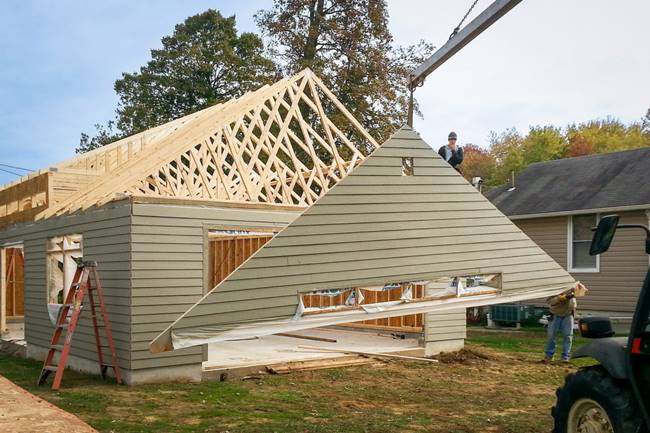
- Assembly Challenges — While the assembly process is typically quick and straightforward, it can be challenging for those with limited construction experience. Hiring professionals for assembly may be necessary, adding to the overall cost.
- Inflexible Design — Because prefabricated garages are built almost entirely offsite to generic plans, you don't have much choice as far as size and design options are concerned. Your only choice may be the garage door installation you would like. Custom options may be more suitable if you require a garage larger than the standard sizes offered.
- Limited Design Lifespan — The design of prefabricated garages may have a shorter lifespan compared to traditional garages. While they are durable, they may not last as long or maintain their appearance as well over time.
- Permitting Requirements — Prefabricated garages may still require permits and approvals from local authorities. It's essential to check with your local building department to understand the permitting process for prefab structures.
- Poor Insulation — Prefabricated concrete, steel, or sheet metal garages are poorly insulated, which means they cost more to heat and cool.
- Quality Concerns — The quality of prefabricated garages can vary depending on the manufacturer. Researching and choosing a reputable manufacturer is essential to ensure you get a high-quality product.
- Resale Value — Prefabricated garages may not add as much value to your property as traditional garages. Some buyers may prefer the look and durability of a brick-built garage, which could impact resale value.
- Unattractive Appearance — Most people consider concrete, sheet metal, and steel garages to be far less attractive than well-designed, brick-built ones.
Examples of Prefabricated Garages
For a better idea of the prefabricated garage options available for installation, browse the following images of popular prefabricated models from Sheds Unlimited.
IMAGE SOURCE: Sheds Unlimited
Prefabricated Garage FAQs
Yes, prefabricated garage doors can be customized to fit your garage's specific dimensions and match its architectural style. Most manufacturers offer a range of sizes, materials, colors, and designs, allowing you to tailor the door to your preferences.
Prefabricated garage doors are designed to be relatively easy to install, especially compared to custom-built doors. They come with detailed installation instructions, and many homeowners find that they can install the doors themselves with basic tools. However, professional installation is always an option for more complex installations or if you need more time to get comfortable with DIY projects.
Prefabricated garage doors are typically made from durable materials such as steel, aluminum, or wood composite, designed to withstand the elements and daily use. They generally require minimal maintenance, such as periodic cleaning and lubrication of moving parts. However, the exact maintenance requirements can vary depending on the material and finish of the door, so it's essential to follow the manufacturer's guidelines.
Building Costs: Brick Garages vs. Prefabricated Garages
If you're considering building a brick or prefabricated garage, you may be wondering just how much each type costs to build. Compare the average building costs of brick and prefabricated garages, based on 2024 averages for homeowners throughout the United States.
| Garage Size (Feet) | Square Feet | Number of Cars | Prefabricated Garage Cost (U.S. Average, 2024) | Brick Garage Cost (U.S. Average, 2024) |
|---|---|---|---|---|
| 12ft x 24ft | 288 | 1 | $5,200 – $13,000 | $14,100 |
| 14ft x 28ft | 392 | 1 | $7,100 – $17,600 | $19,200 |
| 20ft x 20ft | 400 | 2 | $7,200 – $18,000 | $19,600 |
| 24ft x 24ft | 576 | 2 | $10,400 – $26,000 | $28,200 |
| 36ft x 24ft | 864 | 3 | $15,600 – $38,900 | $42,300 |
SOURCE: HomeGuide data on brick and prefabricated garages.
For Local Garage Door Installations, Call Our Team
Whichever type of garage you decide to build, A Better Garage Door will be very happy to take care of your new garage door installation if you happen to live in our service area. We are a well-established and reputable overhead door company serving customers in Parker, Aurora, and surrounding areas.
